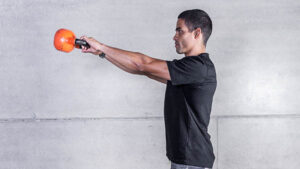
Activities such as climbing and martial arts can positively affect how we feel. HFM explores the science behind a mental health adventure
Do you ever feel like your mind is caught in a loop of negativity? Perhaps you overthink events that make you sad, or you’re stuck in a rut of stress and anxiety. It might seem like there’s no way out, but the good news is that certain activities heralded by scientists can help us improve our mental health.
Get outside
The healing power of Mother Nature might sound a little too ethereal to be backed by science. But studies have found spending time outdoors can ameliorate the negative effects of rumination, and dampen the activation of the subgenual prefrontal cortex (a region in the brain that processes sadness and is linked to mental illness). Rumination is linked to depression, so if you spend too long alone with obsessive thoughts, you’ll be at risk of causing yourself long-term mental health problems. Instead, why not spend that time headed up a mountain?
On top of the mood-lifting benefits of the great outdoors, a brisk walk in a natural environment can improve your creative ability for up to four days afterwards, suggests a study from the University of Utah in the US. ‘This shows that interacting with nature has measurable benefits for creative problem-solving that hadn’t been formally demonstrated before,’ says David Strayer, professor of psychology and study co-author.
The benefits may go even further. In 2018, the NHS in Shetland started prescribing rambling and birdwatching to patients suffering from debilitating illnesses including depression, diabetes and heart disease. ‘The physical and mental benefits of connecting with nature have been well-evidenced by numerous studies,’ says Makena Lohr, NHS spokesperson. ‘It’s high time the healthcare sector became aware of that.’
If you find your brain is a spider’s web full of problems you’re unable to solve, it could mean you’re suffering with anxiety. One answer is to focus on a problem you can solve. Climbing outdoors – or bouldering indoors – is an activity that involves constantly solving small problems. In Germany, some hospitals have begun using it as a therapeutic treatment, and a study from Nuremberg found climbing could be used to treat symptoms of depression. ‘Studies suggest positive effects on anxiety, ADHD, depression, cognition and self-esteem, as well as in the social domain,’ says Katharina Luttenberger, leader of the study.
Overcoming tasks that require us to use both mind and body is also a great way to boost our thinking abilities. A study from Florida found that activities such as climbing can improve cognitive skills. ‘This research suggests doing activities that make us think can exercise our brains as well as our bodies,’ says researcher Ross Alloway. ‘By taking a break to do activities that are unpredictable and require us to consciously adapt our movements, we can boost our working memory to perform better.’
Focus on martial arts activities
‘The successful warrior is the average man with laser-like focus,’ said Bruce Lee, and it’s this focus that’s the key to being a successful martial artist. Experts in cognitive function suggest two ways to improve focus: attention training (AT) and attention state training (AST). In martial arts, you take time to perfect technical moves – punches, kicks, grapples or throws. This makes it a form of AST, where you build a state of mind that enables a stronger focus, as opposed to AT, where you improve your ability to focus on a specific task.
Martial arts can also boost confidence. ‘It’s a great leveller: nobody judges you on anything you’ve done before, and self-esteem is automatically promoted when you’re equal to people,’ says seven-time European Brazilian jiu-jitsu champion, David Onuma.
‘Once you’ve learnt to deal with being on the mat with someone sitting on your head, other things don’t feel so uncomfortable!’ Also try the softer practice of tai chi. One study found that its controlled breathing and focused movement promotes positive mental health.
This move is king when it comes to core. Learn perfect form to reap maximum benefits and avoid injury.
The bounce back begins. There’s no doubt that the Covid-19 crisis curtailed fitness routines for millions, as competitions were cancelled, training programmes postponed and events put on […]



